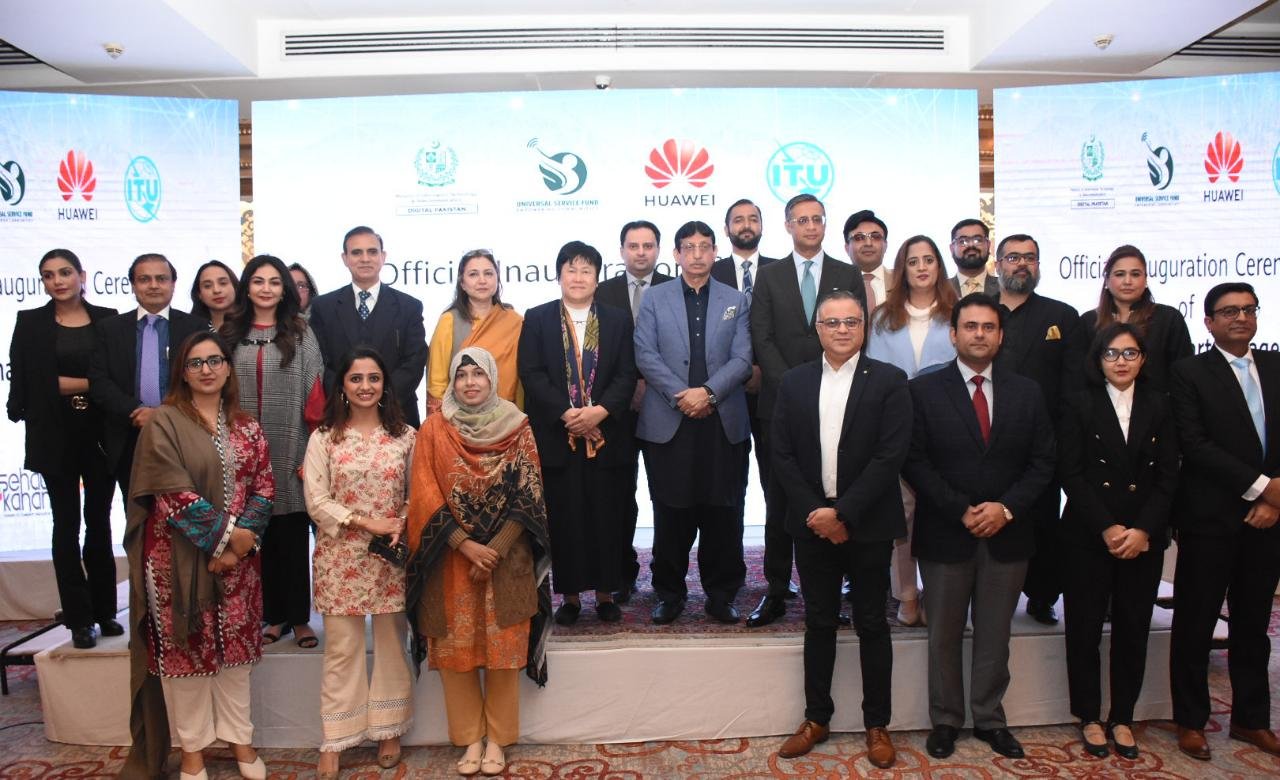This pilot project is a part of Smart Villages of Pakistan, a national program that the MoITT, USF, the International Telecommunication Union, and Huawei launched in 2021.

In the Asia Pacific region, Pakistan has established the first Smart Village, which gives me great pleasure to announce. In his remarks as the chief guest at the Gokina Smart Village Project’s inauguration ceremony on Wednesday in a nearby hotel, Federal Minister for IT & Telecommunication (MoITT) made the statement.
The goal of Smart Village Pakistan is to connect remote and rural communities to the Internet and provide local residents with access to a variety of digital services in order to empower them and improve their quality of life and well-being, in keeping with the government’s Digital Pakistan vision and the UN SDGs.
This pilot project is a part of Smart Villages of Pakistan, a national programme that the MoITT, the Universal Service Fund, the International Telecommunication Union, and Huawei launched in 2021.
The Federal Minister for MoITT is applauding the efforts of USF, ITU, and Huawei to help rural Pakistan overcome key challenges such as limited access to healthcare, education, financial, and digital services; a lack of employment and income-creation opportunities, digital literacy and gender gaps; and a rural-urban divide exacerbated by uneven technology proliferation. The Smart Village Pakistan Project will be initiated in all provinces soon.
According to the IT Minister, a needs assessment study was conducted in Gokina, a valley settlement 21 kilometres from Islamabad, and three priority areas were determined.
Education: Both a boys’ and a girls’ high school are located in Gokina village. It was discovered that there were no science teachers, especially in girls’ schools, which puts students at a disadvantage in terms of learning and in their ability to compete for the future professional opportunities that science subjects provide at the national and international levels. To fill this gap, the project has found an e-education provider (Tele-Taleem).
Health: The project has identified an e-health provider (Sehat Kahani) to bridge the gap in access to health services in the village, which involves commuting to Islamabad, no emergency services, no doctors, and an absence of a pharmacy. Sehat Kahani will provide basic health advice and services to the community’s members.
Digital Skills & Entrepreneurship: Community members need digital skills enhancement and entrepreneurship to become entrepreneurs in areas such as fashion, stitching, handicrafts, modern agricultural skills, chef skills, marketing of products, and access to finance and markets.
Tariq Malik, the chairman of NADRA, gave a speech at the event and said, “After the success of the mobile NADRA vehicle, we are excited to launch the NADRA Motorcycle Services, starting from Gokina Smart Village and soon to be initiated all over Pakistan – where people will be able to avail all NADRA facilities close to their homes, such as family registration certificates, child registration certificates, etc.
Haaris Mahmood Chaudhary, Chief Executive Officer of USF, highlighted the Gokina Smart Village project as an example of how to achieve digital inclusivity in Pakistan. The USF’s agenda is to empower unserved and underserved communities through collaborations with partners ITU, Huawei, NADRA, and Jazz, as well as service providers TeleTaleem and Sehat Kahani.
Smart Village Pakistan aims to bring digital transformation to rural and remote communities, leaving no one behind and offline.
Ahmed Bilal Masud, Deputy CEO of Huawei Technologies Pakistan, spoke at the event and said, “Through our operators, Huawei continues to advance in Pakistan as a market leader with USF projects in the rural areas. The opportunities presented by digitalization in Pakistan outweigh the challenges by a wide margin. Digitalization is crucial for competitiveness because it provides an incentive to improve capacity to contribute more significantly to the global community.”